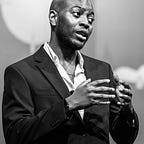The discussion of death is something that a lot of us try to avoid. For obvious reasons.
Now that we got that elephant in the room out of the way, let’s talk about how we can live, fully, while accepting that death is something that none of us can escape.
The fear of death is probably the biggest of all the fears in the world. But there is a great sense of freedom that comes from overcoming this fear. Hopefully this article helps you fear it less.
Like I said in a previous article, your purpose in life is to be useful, with what you have, and where you are.
For a lot of people, the thought that we all die is a cause of anxiety. This can have a paralyzing effect on our motivation to perform our purpose- I mean, why even try, knowing it all goes to waste anyways.
I used to think about this often, until I watched a lecture by Professor Kagan of Yale on How to live, given the certainty of death.
I learned a lot from it, and then added my own insights, based on other learnings and observations.
Here’s my conclusion:
How to maximize the value of your life
There are 2 variables when it comes to the value of life — Quality and Quantity.
Most of us like to think that we would like to live really long, and possibly forever, if given the choice. But do we really?
Which is better?
A life lived at an 80% quality for 50 years (Better quality)
or
A life lived at 5% quality for 100 years? (More quantity)
We can’t control the length of our lives (at least not entirely), but we can control the quality of what we do with it while we are alive.
You can either live:
A. A steady Life
Play it safe and go for the simple goals like getting a regular 9–5 job, get married, have kids, travel for vacations, live a healthy lifestyle and live long etc.
Or
B. A super ambitious Life
Be super focused, an aim for ambitious goals like launch a world changing company, try to win an olympic medal, Nobel Prize etc.
Each of these have their pros and cons.
For A, even though you play it safe and often achieve your goals, you lose out on maximizing your potential and the fulfillment that comes with succeeding at an ambitious effort.
For B, you get to live to your maximum potential, but you also risk burning yourself out, and possibly failing completely and in the process wasting your life’s value.
Most people think it’s either one or the other, but the solution is to have another option-
C — Balance
Aim for the ambitious efforts of B (Being ambitious), but remember to balance it with a normal life of A (Enjoying the simple things). Hang out with friends, try a variety of good food, travel to new places, do fun things.
So even if you fail at B, your life would still have a lot of value and happiness.
This story from one of my favourite books — The Alchemist by Paulo Coelho, explains this better.
“The secret of happiness is to see all the marvels of the world, and never to forget the drops of oil on the spoon”
How to live forever
We are already (sort of) live forever
Unfortunately, we don’t have horcruxes (yet). Bu take courage in knowing that we never truly leave the world anyways. When we die (especially when buried), our remains still remain on earth. We may not be conscious, but all our energy and matter remains in the world to create future energy, soil and remains that form new life like plants, flowers, materials like diamonds etc. We always remain part of the cirlcle of life.
Here is Neil De Grass Tyson explaining this in more detail.
Reproduction
This is an obvious one .You can live forever by passing down your gene from having children that then go on an reproduce too.
As long as your offsprings keep reproducing, your footprint still remains, and you never really die.
Leaving a legacy
Another way to achieve immortality is to produce work(s) that outlive you. This could be in form of making art (Picasso), a building that you designed (Ahmad Lahori), a company (Henry Ford), starting a social movement (MLK), or inspiring a way of living (Seneca) etc.
Most of the innovations and ideas that drive our society today were started by people that are long gone centuries ago.
No matter what you do, aim to produce your best work. Create something that will live on long after you are gone.
This is one of the reasons I’ve been focused on producing a lot more than I consume lately, and trying to create as much value as I possibly can while I’m here. So that when I’m long gone, a part of me will always remain in some shape or form through others.
